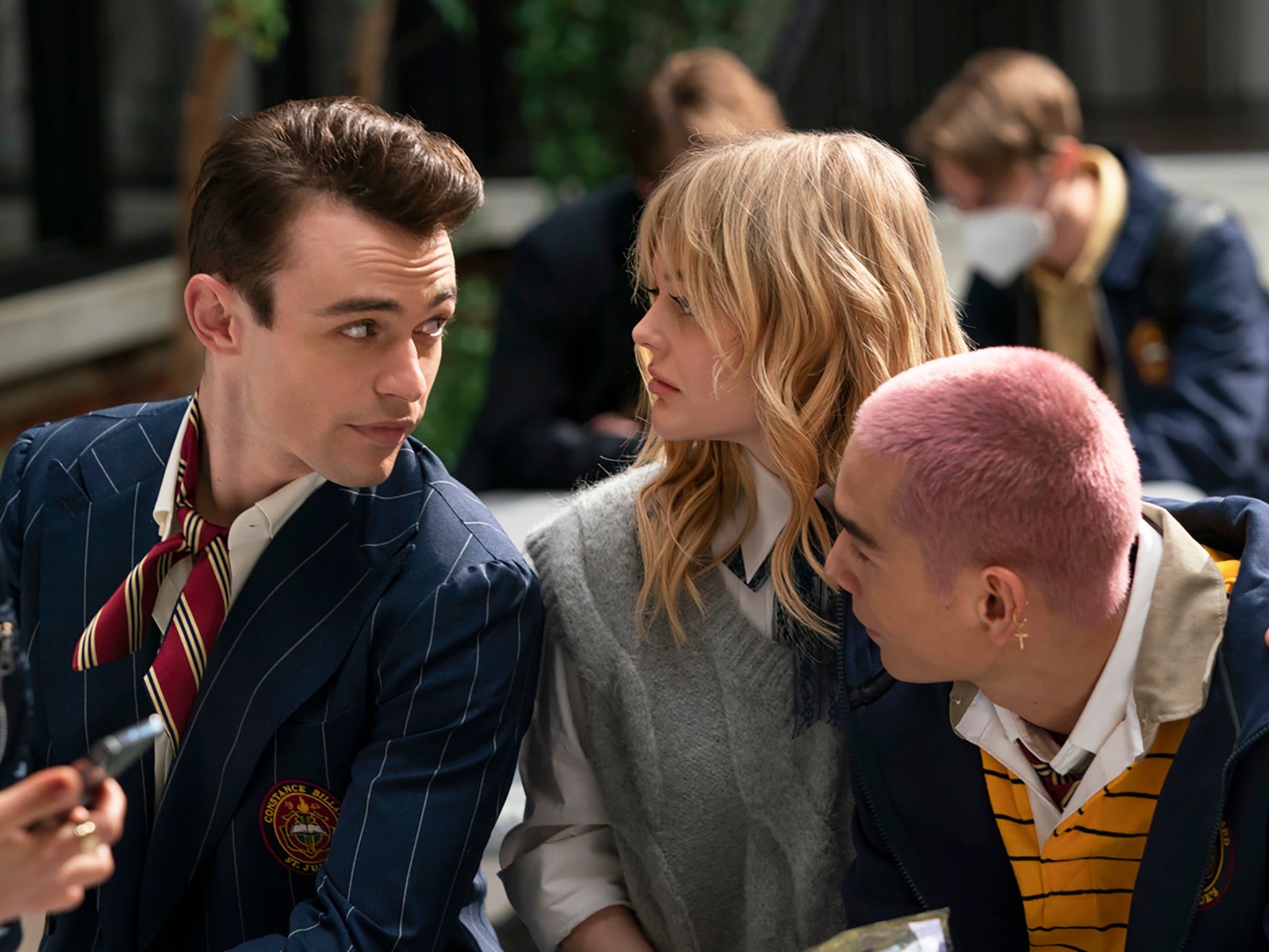Gossip Girl review: A chronically nice reboot that’s about as tedious as an Excel spreadsheet
Bringing back an absurd soap without scheming and drinks being thrown is like rebooting ‘MasterChef’ without any food

Your support helps us to tell the story
From reproductive rights to climate change to Big Tech, The Independent is on the ground when the story is developing. Whether it's investigating the financials of Elon Musk's pro-Trump PAC or producing our latest documentary, 'The A Word', which shines a light on the American women fighting for reproductive rights, we know how important it is to parse out the facts from the messaging.
At such a critical moment in US history, we need reporters on the ground. Your donation allows us to keep sending journalists to speak to both sides of the story.
The Independent is trusted by Americans across the entire political spectrum. And unlike many other quality news outlets, we choose not to lock Americans out of our reporting and analysis with paywalls. We believe quality journalism should be available to everyone, paid for by those who can afford it.
Your support makes all the difference.A show about scheming, oversexed Manhattan high schoolers shouldn’t be as boring as the Gossip Girl reboot. A direct sequel to the original 2007 series – which ended in 2012 after six scandalous and increasingly deranged seasons – it saps its juicy premise of all its fun, is po-faced and didactic rather than enjoyably preposterous, and has about as much insight into Gen-Z mores as your average Sarah Vine column. Never has a teen drama felt more like the product of a pack of 40-year-olds.
The original Gossip Girl, with its frantic pacing, soapy twists and rat-a-tat dialogue, understood the inherent absurdity of the world it took place in. It told the story of Serena van der Woodsen (Blake Lively) and Blair Waldorf (Leighton Meester), friends turned enemies, each thirsty for status and power in modern Manhattan. Providing a Greek chorus to their dramas – and at least partly orchestrating them – was an omniscient and anonymous blogger known as “Gossip Girl”, who was given voice by Kristen Bell.
This new Gossip Girl retains the all-seeing-eye figure of its title and Bell’s campy voiceover – characters from the original are also name-dropped with regularity – but otherwise, it revolves around a new collection of teenagers. Led by half-sisters Julien (Jordan Alexander) and Zoya (Whitney Peak), the ensemble is less white this time around and a lot more sexually fluid, but also about as tedious as an Excel spreadsheet. The sequel’s most novel idea is additionally its most inane: Gossip Girl – now an Instagram account, because what’s a blog? – is resurrected 10 minutes in by a group of aggrieved teachers (spearheaded by former pre-teen fashion wunderkind Tavi Gevinson, in a bit of casting that’ll send you spiralling to the nearest retirement home), who are determined to wreck the social lives of their students.
If only this Gossip Girl’s manufactured drama was dramatic. Executive producer Joshua Safran – who also produced the original show – sparked a minor Twitter ruckus in May when he said the new Gossip Girl would avoid the “slut-shaming and catfights” of its predecessor, which is a bit like rebooting MasterChef without any food, or if The Simpsons stopped being yellow. He doubled down in a recent interview with Variety, where he declared that today’s teenagers don’t grow combative with one another because of relationship woes or rivalries, but rather, over matters of authenticity, refusals to grow or learn, or a lack of consciousness about privilege. “That’s where the conversation is,” he claimed. “It’s not: ‘You slept with my boyfriend, and I’m going to now destroy you online.’”
It’s an ethos that not only feels wrong – Gen-Z might retweet Alexandria Ocasio-Cortez with regularity, but they’re just as cruel, petty and narcissistic as every other generation of teenagers through history – but also dramatically baffling. It makes no sense to have Gossip Girl without drinks being thrown, or evil teenagers being ruthless in Hervé Leger. Beyond an occasional withering quip, this show’s core cast are chronically nice. They don’t so much snort and plot as they do protest gentrification in their spare time. One future episode sees a character confronted with mean tweets she once wrote, only for said character to apologise and pledge to be a better person moving forward. The hell?
Frustratingly, Gossip Girl should be perfectly attuned to 2021. What does it actually mean to be “cancelled” at 16 or 17? Do you – digitally at least – wither and die? Or do you merely rebrand yourself as an internet villain rather than one of its virtuous heroes? When far bigger, more world-shaking scandals disappear with a refresh of your timeline, does any of this petty high-school conflict even matter? There is so much to mine here – about adolescence and identity and internet currency – but all is left squandered.

The show leans so hard into a kind of nonchalant anti-drama that you can barely understand why anyone is doing what they’re doing. At one point in Gossip Girl 2.0’s first episode, a character declares to her rival that she intends to topple the current social hierarchy at school, before immediately undercutting herself. “You still think there’s something to win,” she says. “But I’m not playing your game, so its outcome means nothing to me.” OK, so why are you bothering? And why should we?
‘Gossip Girl’ is streaming now on BBC iPlayer



Join our commenting forum
Join thought-provoking conversations, follow other Independent readers and see their replies
Comments